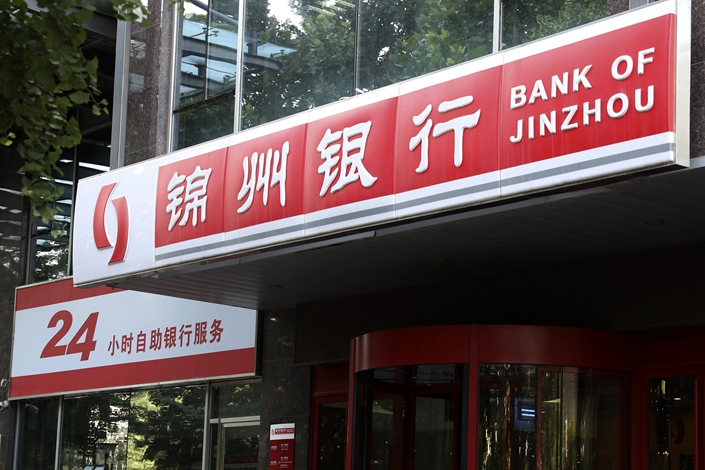CX Daily: Local Governments are Auctioning off Billions in Assets

Tax cuts /
China’s local governments sell assets to make up for revenue loss
The governments of Guangdong, southwestern Sichuan and northeastern Liaoning provinces are seeking to sell state-owned assets to “support the implementing of tax cuts,” according to local media, as China’s sweeping measures to cut taxes and fees amid slowing economic growth are putting pressure on local government budgets.
The assets considered for sale will be idle state-owned assets as well as those operating inefficiently over the long term, local media reported. The Sichuan government plans to select and auction certain investments held by state-owned property companies.
A district government of Shenyang, the capital of Liaoning province, proposed last September to sell nine pieces of idle state-owned assets to pay overdue debts of some government investment projects. Meanwhile, in the first half of this year, Guangdong province generated more than 40 billion yuan of revenue from monetizing state-owned assets, an increase of 65.4% from the same period last year.
FINANCE & ECONOMICS
 |
| Photo: VCG |
Lending /
Embattled Bank of Jinzhou reports huge losses
Bank of Jinzhou is reporting total net losses of 5.4 billion yuan ($752.7 million) in 2018 and the first half of 2019, spelling more bad news for the embattled regional lender.
The Hong Kong-listed bank’s board also announced a plan on Sunday to cancel the dividends of offshore preference shares from October 2018 to October 2019, citing capital adequacy ratios that failed to meet regulatory requirements at the end of last year. The trading of its shares, which was suspended at the beginning of April after it failed to publish a 2018 annual report, resumed Monday, with prices closing down 8.6% at HK$6.40 ($0.80) from HK$7 on March 29.
Markets /
Shanghai Stock Exchange rolls out ‘company portrait’ system to help with monitoring
The Shanghai Stock Exchange rolled out a “company portrait” system Monday, aiming to better monitor publicly listed companies using technology, namely by providing detailed information on publicly listed companies’ regulatory filings, financial reports, stock prices, news, shareholders and risk scanning.
The system will initially be used by securities regulators and the supervision departments of listed companies. Later it will be open to other agencies and market institutions, we've learned. The exchange also plans to roll out other tech-enabled supervision systems for vetting of IPOs for its newly launched high-tech board, as well as option products and bonds.
Economy /
Caixin New Economy Index rebounds in August as capital inputs rise
The contribution of high value-added industries to China’s economy rebounded in August as capital inputs increased, a Caixin index showed Monday.
The Mastercard Caixin BBD New Economy Index (NEI) came in at 29.4 in August, indicating that new-economy industries accounted for 29.4% of China’s overall economic input activities. The reading rebounded from 28.7 in the previous month. The capital inputs subindex, which has a weighting of 35%, logged a 2.5-point rise from the previous month in August to 34.5.
Quick hits /
A near-dozen finance veterans enter government
Editorial: China’s free trade zones must adapt to local conditions
BUSINESS & TECH
 |
Andrzej Duda, right, and Mike Pence in Warsaw, on Sept. 2. Photo: Bloomberg |
5G / Poland
U.S., Poland ink 5G security agreement in shadow of anti-Huawei campaign
The U.S. and Poland agreed Monday to a deal designed to secure 5G wireless networks in the European country, a move that could result in blocking Huawei Technologies Co. and other Chinese telecommunications companies from Polish networks.
The deal was signed by U.S. Vice President Mike Pence, who’s visiting Warsaw, and Poland’s Prime Minister Mateusz Morawiecki. It stipulates that suppliers should be given a “rigorous evaluation,” including whether they are controlled by a foreign government, and be subject to “independent judicial review.” They would also be vetted on whether they have a transparent ownership structure, a “record of ethical corporate behavior” and if they’re “subject to a legal regime that enforces transparent corporate practices.”
Appliances /
Race to become Gree’s largest shareholder narrows to two
Of around 25 firms and consortia that had expressed interest in a major stake of Gree Electric, only two remain, as the air conditioner giant inches closer to a deal that has captured the market’s attention for months.
A Zhuhai-based private equity fund backed by Hillhouse Capital Group, and a consortium of two companies controlled by Hopu Investment Management Co. Ltd., both filed application materials and paid 6.3 billion yuan ($879 million) ahead of a Sept. 2 deadline to be in the running to buy 15% of Gree Electric, according to a company statement.
Food /
City puts price controls on pork in wake of swine fever outbreak
Nanning, the capital city of Southern China’s Guangxi Zhuang autonomous region, issued an administrative order to vendors capping pork prices starting Sunday and announced subsidies to help them do so, according to the government-run Nanning Daily. Pork prices have climbed in response to the African swine fever outbreak.
Every morning before 9 a.m., vendors in 10 major farm produce markets scattered across the city’s eight districts will sell pork at discount of at least 10% off the average price of the previous 10 days. Each consumer is limited to buying as much as 1 kilogram of the discounted pork. The amount of discounted pork will be limited to one pig’s worth per vendor per day.
Properties /
Tensions could push Hong Kong home prices, retail sales down as much as 30%: JPMorgan
Hong Kong home prices and retail sales could drop by as much as 30% and office rents could tumble even more under a worst-case scenario described by investment bank JPMorgan, taking into account recent unrest and fallout from the U.S.-China trade war in the former British colony.
JPMorgan said it used a decline to 10 from the current 14 in home price-to-income ratio to determine its worst-case scenario for a 30% drop in home prices. It envisioned a drop of as much as 70% in tourism and a 10% decline in domestic consumption to calculate an equally dire 30% worst-scenario decline in overall retail sales. It also noted that a potential flight of multinationals amid a confidence crisis could cause office rents to decline 40% from current levels.
Quick hits /
Luckin spins off bubble tea business after just five months in sector
Facial recognition startup Megvii gets knuckles rapped over class monitoring demo
Australian wool out in the cold as China stops buying
Clean heating subsidies to eat up more of northern budgets
Chinese developers shed thousands of staff in sign of tough times
Weibo tests new Instagram-like app
China drone attack on crop-eating ‘monster’ shows 98% kill rate
Thanks for reading. If you haven't already, click here to subscribe.
- 1China Officials Dismiss Tax Hike Rumors After Tech Selloff
- 2Cover Story: How Gutter Oil Became a Prized Fuel for International Airlines
- 3Prominent Chinese Journalist Liu Hu Detained by Police in Chengdu
- 4Maersk Unit Takes Over CK Hutchison Panama Ports After Court Ruling
- 5China Provinces Set Cautious 2026 Growth Targets
- 1Power To The People: Pintec Serves A Booming Consumer Class
- 2Largest hotel group in Europe accepts UnionPay
- 3UnionPay mobile QuickPass debuts in Hong Kong
- 4UnionPay International launches premium catering privilege U Dining Collection
- 5UnionPay International’s U Plan has covered over 1600 stores overseas



